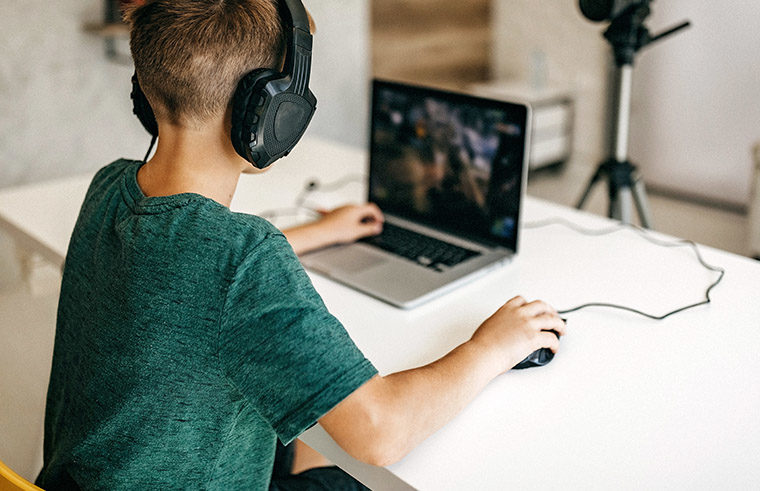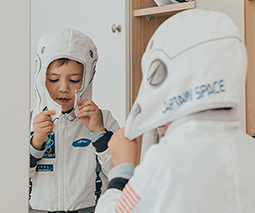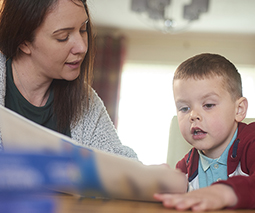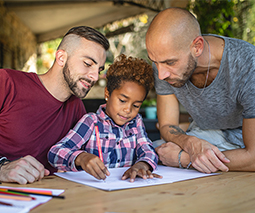Thinking about homeschooling in Australia? This is what you need to know

Homeschooling is on the rise in Australia. Bureau of Statistics figures show that in Queensland the number of homeschooled kids has increased from 1,100 in 2013 to 3,232 in 2018.
While the numbers aren’t huge compared to those enrolled in mainstream schools, it’s definitely an upward trend. And it might be an option you are considering for your kids when the time comes.
So here’s what you need to know about homeschooling right now.
Why are parents turning to homeschooling?
Susan Wight is from the Home Education Network, a not-for-profit organisation. She homeschooled her three children, who are now adults, and she now supports other parents wanting to do the same.
“I had children who really didn’t fit well into school,” Susan explains. “They loved learning, but they were just feeling unhappy in school. They didn’t feel like they were learning enough. And I thought, why not?”
The idea of homeschooling might seem like a lot to take on, but Susan says making the decision was the hardest part of this big shift for her family. Once decided, things fell into place.
Listen to Susan Wight on Feed Play Love
“It wasn’t difficult,” Susan confirms. “It’s sort of a hard decision to make. It seems such a radical thing to do. But once you start home education and you meet other people, you really wish that you’ve done it from the start.”
“There’s about that 60 percent of home educators have had children in school and taken them out of school. And the other 40 percent have always been home educated.”

Discovering the world with your children
Susan says that for many parents, homeschooling gives them more time to explore the world with their little ones and it means they don’t have to separate from their child during those sensitive early years.
“We have these beautiful little children who delight in every little discovery when they’re toddlers,” Susan points out.
“There’s no reason that when they turn five or turn six, you can’t go on alongside them, discovering the world and sharing their joy, learning to read and every other skill.”
There are lots of other reasons parents choose to homeschool their kids, apart from extending those early years together. Susan’s organisation has surveyed parents with some interesting results.
“The top reason that people gave was the ability to tailor the education to the child,” Susan explains.
“Other reasons include inadequate school provision, diverse learning needs – whether that’s gifted children or children with specific learning needs.”
Some parents had philosophical reasons for keeping schooling their children at home.

A different kind of relationship
While it might be easy to assume that children perform better with direction and discipline from a teacher outside their family, Susan says that’s not the case.
“What I found – and what a lot of other parents find – is when you home educate, you develop a different relationship with the children … There’s a lot more give and take.”
There’s a misconception that you need to have a tertiary degree to homeschool effectively. Susan shed some light on that too.
“I’m not university educated myself, but I have educated my kids and two of them have gone off to uni. I’m interested in learning. I could have spent years in university getting a degree, but I was getting on with having kids at that point,” she explains.
Homeschooling parents don’t need to have an encyclopaedic knowledge of the curriculum either.
“You don’t have to know everything,” Susan confirms. “You have access to the internet, of course … you can utilise tutors. There are online courses. There are home education groups in every suburb where parents can share skills, do group activities and classes.”
“If you’re not great at maths, you can get a tutor for maths,” she points out. “If you’re wonderful with craft activities, but not so good at English, you can you can get a tutor, you can work with other parents. There are all sorts of options.”

A child-led curriculum?
Homeschooling regulations and curriculum vary from state to state, but the important thing for parents to know is that there is plenty of support on hand – and that you can vary what you teach according to your child’s interests.
“My method has always been to follow the kids’ interests because children retain what they are interested in. So when they ask you ‘why is the sky blue?’ That’s when you talk about that stuff.”
“When you’re reading to them and they want to know what that squiggle means. You explain what that squiggle means … rather than setting up a lesson to teach something that they’re actually not interested in today.”

What about social skills though?
What about that old chestnut that homeschooled kids miss out on valuable friendships with other children?
“It’s a misconception that home education means the kids sitting at home all day with mum at the kitchen table,” Susan tells us. “Most of us are also out all the time. There are activities running. You know, you could go to something four days a week if you wanted to.”
Not only are there all sorts of different activities and support structures, there are all kinds of diverse homeschooling families too.
“Our home education group was really a melting pot,” Susan explains. “They were very different people, you know, people from vastly different backgrounds and social economic groups to what the kids had at school where all the kids came from a very similar socio-economic background. Education really broadened that and they saw how other people live, which has been quite a quite an education.”

Making it work
Parents approach the way they home school their kids in equally varied ways.
“Some parents divide the home education between both parents and both work part time. Some parents work shift work. Some parents work grandparents in one day a week,” Susan says. “There are different solutions for different families.”
“Home education doesn’t necessarily have to be on school days or in school hours. So there are people who spread the education throughout the week and you also have 365 days a year. So you don’t necessarily have to run to school terms, which is great for holiday periods.”









